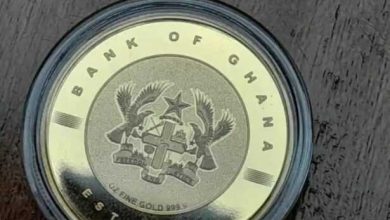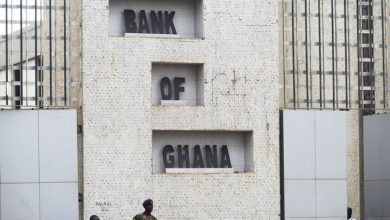Charles Adu Boahen relocates to South Africa

|
Getting your Trinity Audio player ready...
|
Charles Adu Boahen, a former Minister of State at the Finance Ministry, has denied remaining a director on the Bank of Ghana (BoG) Board, despite leaving the ministry since November, last year.
Family sources told The Herald that, Mr Adu Boahen, has virtually relocated to South Africa, where he works, and frequently travels to Ghana for personal reasons and goes back.
Mr Adu Boahen’s name, has been captured in the BoG’s 2022 Report and Financial Statement as still a member of the Central Bank board led by Governor, Dr Ernest Addison. But The Herald’s sources close to him, have explained that this could not be true, as he has not been resident in Ghana since leaving office last year.
Sources close to the former Minister of State at the Finance Ministry, have told this paper that his membership on the BoG board, was as a result of his position as a minister, and having ceased to be a minister, he automatically ceased to be on the board.
“The seat he occupied was reserved for a representative of the Finance Ministry; typically a Deputy Minister or Minister. Since he is no longer a minister, he ceases to be on the board”.
Mr Adu Boahen, was said to have explained that his name was captured in the annual report for the 2022 Financial year, because during the year, he was a director up until November, so it makes sense to be listed in the report.
President Nana Akufo-Addo, terminated the appointment of Mr Adu Boahen, last November.
A statement from the Presidency, the Director of Communications, Eugene Arhin, said, “After being made aware of the allegations levelled against the Minister in the exposé, ‘Galamsey Economy’, the President spoke to Mr Adu Boahen, after which he took the decision to terminate his appointment, and also to refer the matter to the Special Prosecutor for further investigations.”
He said the President thanked Mr Adu Boahen for his strong services to his government since his appointment in 2017 and wished him well in his future endeavours.
Meanwhile, the Central Bank has in recent days been in the news for the wrong reasons. Firstly, the UK-based news agency; Reuters reports that Ghana’s government has written off half of the GHc77.6 billion cedis ($7 billion) it owed to the central bank and has replaced the remainder with a lower yielding, 15-year bond.
Secondly, the same Central Bank, has in its annual report revealed that GH¢131.586 million was spent on motor vehicle maintenance/running as of December 2022, this is away from the GH¢61.510 million spent over the same period in 2021.
Thirdly, BoG’s 2022 Report and Financial Statement stated its staff strength at the end of the year was at a massive 2,215, which drew a colossal GH¢1.620 billion compared to GH¢1.260 billion recorded in 2021.
A general analysis of the balance sheet, indicated that there was a more than 100percent increase in most of the Bank’s expenditures in 2022, as compared to the previous year, according to the annual report.
On the debt cancellation, the UK News agency reports that the latest move is part of the West African nation’s push to restructure its domestic debt – a requirement to qualify for the next tranche of a US$3 billion International Monetary Fund (IMF) rescue loan. Ghana now wants to focus on negotiations with external creditors.
The gold, oil and cocoa producer concluded the first phase of domestic debt restructuring in February, when 85percent of eligible holders exchanged their local currency bonds for new longer-dated bonds, with lower interest rates. This included the central bank, which exchanged 17 billion cedis.
From the annual report of the BoG, it was revealed that GH¢97.437 million was spent on both foreign and domestic travel – a 300% increase compared to GH¢28.176 million recorded in 2021.
For instance, Communication expenses and banking college and Monetary Institutes expenses were GH¢32.020 million and GH¢13.252 million respectively.
Computer-related expenses and banking supervision expenses were GH¢ 67.987 million and 357.923 million respectively.
Source: theheraldghana.com




